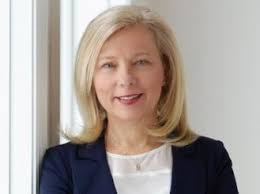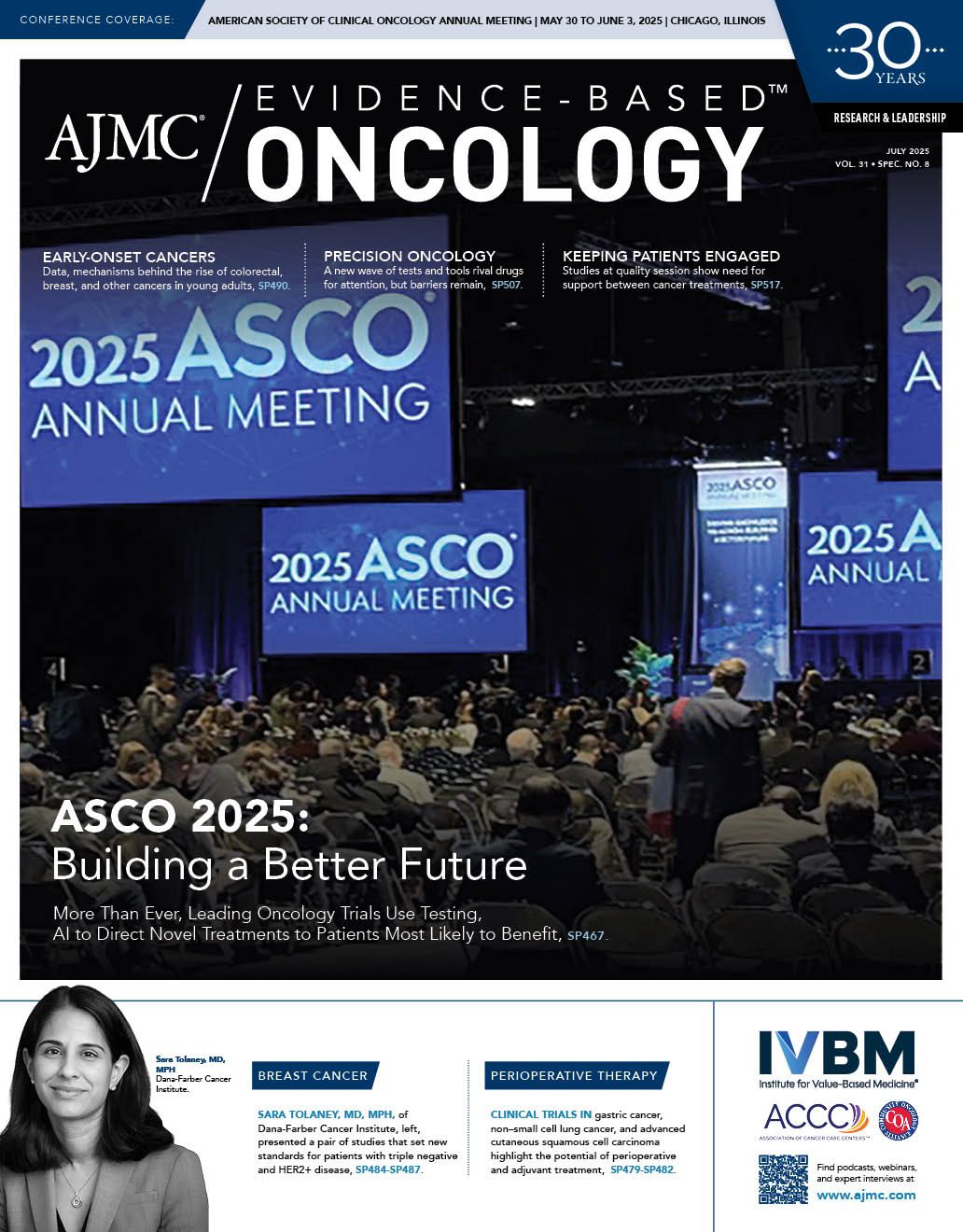- Center on Health Equity & Access
- Clinical
- Health Care Cost
- Health Care Delivery
- Insurance
- Policy
- Technology
- Value-Based Care
Building a Better Future Through Technology, Advocacy, and Community
ASCO President Robin Zon, MD, FACP, FASCO, emphasizes how AI solutions and advocacy in enhancing cancer care, ensuring equitable access to innovative treatments for all patients.
Each year at the American Society of Clinical Oncology (ASCO) Annual Meeting, leading scientists present the latest findings from clinical trials, offering hope of continuing life, reducing harsh effects of therapy, or both.
Bringing those opportunities to all patients, no matter where they live or receive care, was the idea behind the theme set by ASCO President Robin Zon, MD, FACP, FASCO, as she launched her tenure a year ago.1
Now physician emeritus at Michiana Hematology Oncology in Mishawaka, Indiana, where she formerly served as president, Zon has worked for decades to bring the latest insights of academic medicine to community practice.
Robin Zon, MD, FACP, FASCO | Image credit: ASCO

“How do we get there?” Zon asked in her presidential address. “As a community oncologist, that’s something I think about every single day. It’s why I chose my theme, ‘Driving Knowledge to Action: Building a Better Future.’ I believe this theme provides a road map to help achieve our common goal of high-quality care for all patients with cancer.”1
Knowledge is central to ASCO’s mission, but knowledge alone won’t conquer cancer, Zon said. Applying knowledge “will help us ask the right questions, solve problems, make the best decisions for patients, and save more lives,” she said. “Yet despite years of increasing scientific knowledge, we’re ironically facing more and more barriers to delivering care.”
She hinted at the volatile political environment that has threatened cancer research, which has led to a record number of cancer survivors—more than 18 million just in the United States2—and given oncologists hope through the lives they have touched. Zon shared the story of an early patient with a rare cancer who was able to get married and lead a full life thanks to Zon’s consultation with the Indiana University Health Simon Cancer Center. “This kind of collaboration characterizes the care we provide in our communities and has long fueled excellence in cancer care and research everywhere.”
This patient took part in an advisory council to improve future clinical trials, which Zon said “helped us change the face of clinical research in our region.”
Today, technology can aid collaboration, and specifically, artificial intelligence (AI) can serve the second element of Zon’s theme, driving knowledge into action. “Just as we can no longer imagine our world without cell phones and the internet, it will soon be impossible to imagine living without AI,” she said. “We are now at the crossroads of long-imagined possibilities and actionable solutions.”
Already, Zon said, AI has improved scheduling and records management; new tools are allowing clinicians to dictate and process patient notes in a fraction of the time. Faces have come out of the computer during patient visits. Remote monitoring allows for better care of patients in rural areas.
“AI-enhanced radiology and pathology services are revolutionizing care,” she said, citing an article in The Lancet Oncology on how AI-supported mammography found cancers quickly while reducing workload.3
Most of all, AI can process the flood of knowledge in cancer care more quickly than any individual physician ever could. “Did you know there is at least 1 new medical article published every 26 seconds?” Zon said. “You would have to read 5000 articles a day to keep up!”
It’s become clear that asking the best questions will be key, she said, quoting a Harvard Business Review article that said, “AI won’t replace humans, but humans with AI will replace humans without AI.”4
Technology, Advocacy, and Community
These 3 pillars of Zon’s year as ASCO president are centered on a simple message: Knowledge, no matter how evidence based, doesn’t drive itself to action. If oncologists apply what they know, outcomes improve. But too often, evidence-based medicine is inconsistent.
To address this, 4 years ago, ASCO and the Community Oncology Alliance developed the care delivery model ASCO Certified. Today, Zon said, ASCO Edge seeks to do the same in practice management, offering a series of online videos to help physicians gain proficiency in cost cutting and finding efficiencies.5,6
Zon referenced the ASCO collaboration with Google to create ASCO Guidelines Assistant, which went through a “test-drive” during the meeting from May 30 to June 3, 2025. However, Zon added, “It is important to recognize that no technology can replace our expertise. We are responsible for applying the guideline in the context of each patient’s unique situation to make individualized treatment decisions. This sacred responsibility must remain solely ours.”
This “is something you’re already doing, whether you know it or not, and it begins in the most intimate of settings: our clinics,” according to Zon. Battling through prior authorization qualifies, and so does completing forms to allow a patient to collect disability.
Today’s environment calls for new levels of advocacy to protect research funding, to bring clinical trials close to patients, and “for health care delivery that empowers us to drive new knowledge into practice.” Zon encouraged attendees to join efforts to protect and expand research opportunities.
Local efforts pay big dividends, she said, highlighting work by the Michigan Society of Hematology and Oncology, an ASCO affiliate, to pass a state law allowing unused cancer medication to be donated to patients who cannot afford expensive therapies.7 “In just under 2 years, they’ve provided more than $23 million in free medicines to more than 2500 patients,” Zon said. “This program not only reduces medical waste, but it gives patients who no longer need their medicines a way to give back. That’s the power of advocacy.”
“As oncologists, we must be global in thought, local in action. By that I mean we must make it possible for every oncologist to provide the highest quality care, no matter where they work,” Zon said. She created a blog to share stories of inspiring work, including efforts to translate educational videos into 22 languages,8 a program to boost lung cancer screening rates in Indiana, and a decentralized care model to save patients long drives in Montana and Alaska.
Zon ended by recalling her early patient. “Years ago, a patient inspired me to walk in beauty and strength. This is our call: a call to live with authenticity, harmony, and resilience. We must and will forge ahead with unwavering determination, harness technology, and advocate tirelessly to ensure every patient across the globe benefits from the latest innovations in cancer care.”
References
1. Zon R. 2025 president’s address: “driving knowledge to action: building a better future”. American Society of Clinical Oncology Connection. June 1, 2025. Accessed June 25, 2025. https://connection.asco.org/do/2025-president-s-address-driving-knowledge-action-building-better-future
2. Wagle NS, Nogueira L, Devasia TP, et al. Cancer treatment and survivorship statistics, 2025. CA Cancer J Clin. Published online May 30, 2025. doi:10.3322/caac.70011
3. Segnan N, Ponti A. Artificial intelligence for breast cancer screening: breathtaking results and a word of caution. Lancet Oncol. 2023;24(8):830-832. doi:10.1016/S1470-2045(23)00336-4
4. Lakhani K. AI won’t replace humans — but humans with AI will replace humans without AI. Harvard Business Review. August 4, 2023. Accessed June 25, 2025. https://hbr.org/2023/08/ai-wont-replace-humans-but-humans-with-ai-will-replace-humans-without-ai
5. ASCO Certified: patient-centered cancer care standards. American Society of Clinical Oncology. Accessed June 24, 2025. https://www.asco.org/practice-patients/quality-improvement/quality-programs/asco-certified-patient-centered-cancer-care
6. ASCO Edge. American Society of Clinical Oncology. Accessed June 24, 2025. https://
www.asco.org/meetings-education/training-programs/asco-edge
7. CHC cancer drug repository. The Cancer & Hematology Centers. January 31, 2023. Accessed June 25, 2025. https://www.thechc.com/chc-in-the-new/cancer-drug-repository/
8. Zon R. President’s corner: Dr Vishwanath Sathyanarayanan bridges knowledge gaps about cancer for clinicians and patients. December 12, 2024. Accessed June 25, 2025. https://connection.asco.org/do/president-x2019-s-corner-dr-vishwanath-sathyanarayanan-bridges-knowledge-
gaps-cancer

